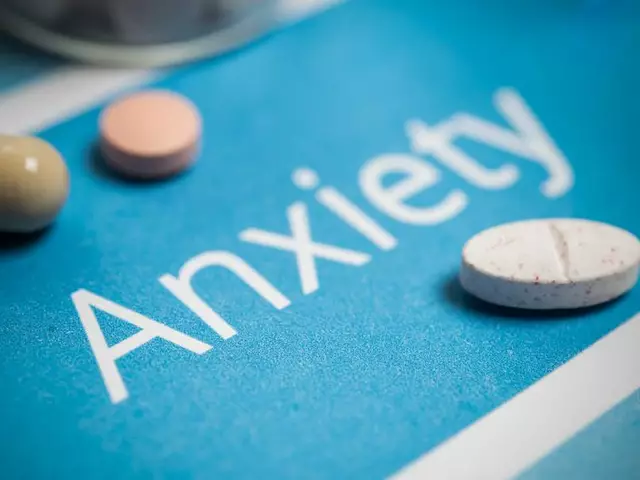Digestive health options: practical steps to feel better fast
Ever feel bloated, gassy, or have heartburn that ruins your day? You don’t need a miracle—small changes often cut symptoms quickly. Below I break down realistic options you can try at home, when to use medicines, and when it’s time to see a doctor.
Self-help and diet fixes that actually work
Start with a short food diary: write what you eat and how you feel for two weeks. You’ll spot patterns—maybe dairy or garlic triggers you, or big meals before bed cause reflux. Try these practical moves: eat smaller meals, slow down while eating, and cut late-night snacks. Add fiber gradually (fruits, oats, beans) to reduce constipation without extra gas. If bloating and irregular bowel habits are your main issue, try a low-FODMAP plan for 2–6 weeks under guidance—it often helps IBS symptoms.
Hydration and movement matter. Drink water through the day and go for a 20–30 minute walk after big meals to help digestion. Limit alcohol, smoking, and high-fat fried foods—each can make reflux and diarrhea worse.
Medicines and supplements: what to try and when
Over-the-counter options: antacids work for instant heartburn relief; H2 blockers (like famotidine) help recurring heartburn; proton pump inhibitors (PPIs) are stronger for frequent reflux but don’t use long-term without a doctor. For gas and bloating, simethicone can help some people. For constipation, try a gentle bulk-forming fiber (psyllium) before stimulant laxatives.
Supplements that help some people: probiotics with Lactobacillus or Bifidobacterium strains can ease mild IBS or antibiotic-associated diarrhea. Saccharomyces boulardii is useful for certain types of diarrhea. Peppermint oil capsules often reduce IBS cramping. Digestive enzyme supplements (lipase, amylase) may help when fatty meals cause discomfort. Start one change at a time so you know what helps.
Prescription and medical treatments: if tests show H. pylori, antibiotics plus acid suppression cure many ulcers. Prokinetic drugs help slow-emptying stomachs. For severe reflux not helped by meds, a referral to a gastroenterologist for tests or surgical options may be necessary. Bile acid binders, pancreatic enzyme replacement, or targeted antibiotics for SIBO are other medical paths—your doctor will recommend based on tests.
Watch for red flags: unexplained weight loss, blood in stool, severe persistent pain, difficulty swallowing, or repeated vomiting. Those need prompt medical attention and often tests like stool studies, breath testing, endoscopy, or imaging.
Practical checklist: keep a food and symptom log, try one diet or supplement at a time for 2–4 weeks, use OTC meds carefully and short-term, and see a clinician if symptoms are severe or persistent. If you need help choosing supplements or finding reliable meds, pick licensed pharmacies and talk to your provider first.
Small, consistent steps usually give big relief. If one approach doesn’t work, there are other safe medical options—don’t suffer in silence.
9
8 Alternatives to Motilium: Exploring New Options for Managing Digestive Issues
Discover viable alternatives to Motilium for those seeking options to manage digestive issues like gastroparesis. This article provides insights into a new front-runner, Relamorelin, with details on its effectiveness, benefits, and drawbacks. As Motilium users look for safer or more accessible alternatives, finding the right fit is crucial. Gains in research offer fresh prospects, while understanding each option thoroughly helps make informed choices on managing symptoms effectively.
Latest Posts
Popular Posts
-
 Duloxetine and Liver Health: What You Need to Know About Hepatotoxicity Risk
Duloxetine and Liver Health: What You Need to Know About Hepatotoxicity Risk
-
 Enteral Feeding Tube Medication Safety: Compatibility and Flushing Protocols Explained
Enteral Feeding Tube Medication Safety: Compatibility and Flushing Protocols Explained
-
 OTC Heartburn Medications: Antacids, H2 Blockers & PPIs Explained
OTC Heartburn Medications: Antacids, H2 Blockers & PPIs Explained
-
 Celiac Disease: Gluten-Free Living and Nutrient Supplementation
Celiac Disease: Gluten-Free Living and Nutrient Supplementation
-
 Accidental Pediatric Medication Overdose: How to Prevent It and What to Do If It Happens
Accidental Pediatric Medication Overdose: How to Prevent It and What to Do If It Happens



